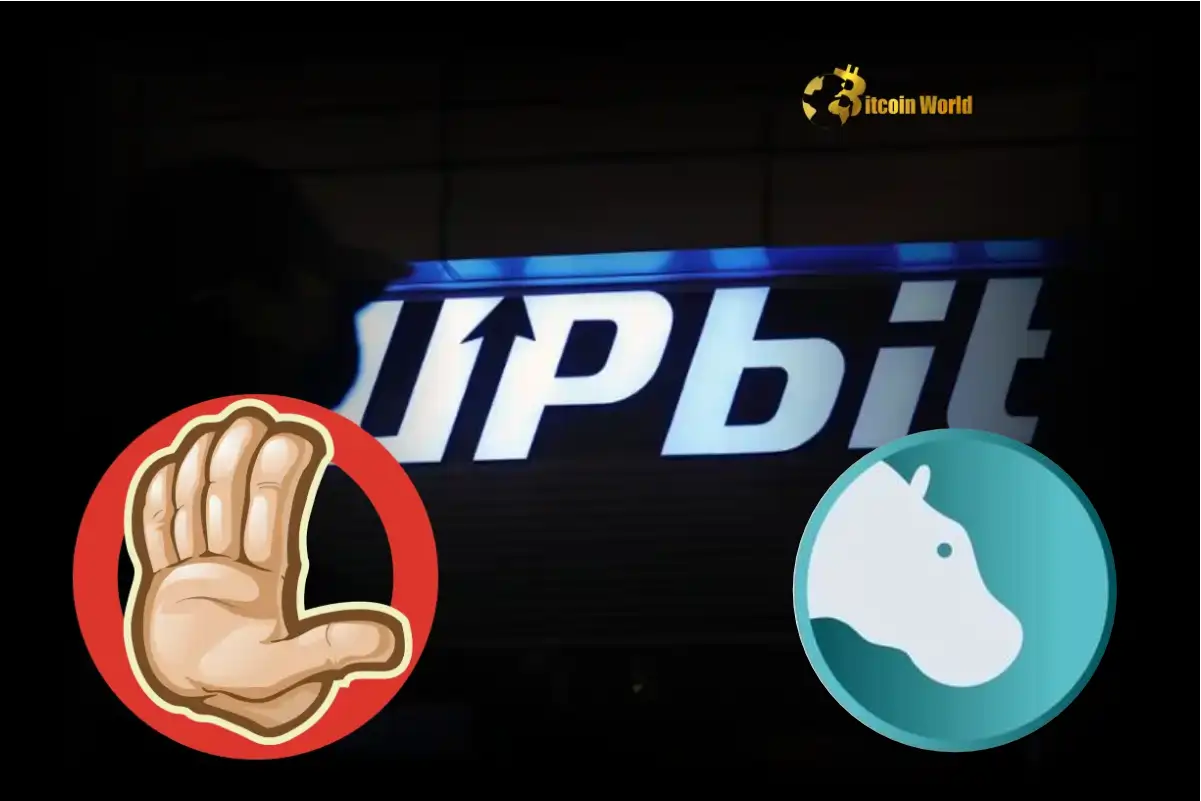Urgent Warning: Upbit Suspends HPO Trading as Korean Crypto Exchanges Flag Volatility Risk
0
0

The world of cryptocurrency is dynamic, and staying informed is crucial, especially when major exchanges issue warnings. Recently, significant developments have emerged from the South Korean market concerning the HPO token, formerly known as Hippocrat, which has undergone a rebranding to Hippo Protocol.
What Triggered the Warning from Korean Crypto Exchanges?
Leading the charge in market integrity, prominent Korean crypto exchanges like Upbit and Bithumb, acting under the umbrella of the Digital Asset eXchange Alliance (DAXA), have sounded the alarm. Their official websites now feature warnings about the potential for significant price swings and instability surrounding the HPO token. This collective decision by DAXA highlights a coordinated effort among major players in the Korean market to address potential risks associated with certain digital assets.
The primary trigger for these warnings appears to be the project’s recent rebranding from Hippocrat to Hippo Protocol. While rebranding can signal growth and new direction for a project, it can also introduce uncertainty regarding its future development, tokenomics, and market perception, potentially leading to unpredictable price movements.
Upbit’s Specific Actions Regarding HPO Token Trading
Among the exchanges, Upbit has taken the most direct action to date. Recognizing the potential for heightened crypto volatility following the warnings, Upbit announced temporary suspensions affecting the HPO token.
Here’s a breakdown of Upbit’s planned actions:
- Deposit and Withdrawal Suspension: Starting at 09:00 UTC on April 30, deposits and withdrawals of the HPO token were temporarily suspended on the Upbit platform. This step is often taken to prevent large inflows or outflows that could exacerbate volatility during a period of uncertainty.
- Trading Suspension: Trading for the HPO/KRW and HPO/BTC pairs on Upbit will also be temporarily halted. This suspension is scheduled to begin at 05:00 UTC on May 8. The exchange stated it will continue to monitor the situation closely even after trading resumes.
These measures by Upbit HPO are designed to protect traders from potentially sudden and sharp price fluctuations while the market digests the implications of the rebranding and the associated volatility warnings.
Why Do Exchanges Issue Crypto Volatility Warnings?
Exchanges like Upbit and Bithumb don’t issue warnings lightly. Their primary responsibility includes maintaining a fair and orderly market and protecting their users. Here are a few key reasons why they might flag a token for potential crypto volatility:
- Significant Project Changes: Rebranding, major shifts in tokenomics, or changes in the development team can introduce uncertainty.
- Market Manipulation Risk: Periods of high uncertainty can make a token more susceptible to pump-and-dump schemes or other manipulative activities.
- Lack of Clear Information: If information about the project’s future is unclear or communication is poor, it can lead to speculation and volatility.
- Regulatory Concerns: While not explicitly stated as the reason here, potential regulatory shifts or interpretations can also trigger warnings.
By issuing warnings and implementing temporary measures, exchanges provide users with notice, allowing them to make informed decisions about their holdings and trading activities regarding the affected HPO token.
The Role of DAXA in the Korean Market
The Digital Asset eXchange Alliance (DAXA) plays a crucial consultative role among major Korean crypto exchanges. Its formation was a response to the need for self-regulation and coordinated action within the industry. When DAXA collectively decides to issue a warning, it carries significant weight and indicates a shared concern among the member exchanges regarding a specific asset or market condition. This collaborative approach aims to enhance market transparency and investor protection across the participating platforms.
Implications for Traders and HPO Token Holders
For traders and holders of the HPO token, these warnings and suspensions are critical pieces of information. The potential for increased volatility means that the price could move sharply in either direction. While temporary trading suspensions can prevent impulsive decisions during volatile periods, they also mean that users cannot access their funds or trade the asset on Upbit during the suspension period.
If you hold HPO, it’s essential to:
- Stay Informed: Follow official announcements from Upbit, Bithumb, DAXA, and the Hippo Protocol project itself.
- Assess Your Risk Tolerance: Understand that the asset carries elevated risk due to the volatility warning.
- Consider Your Options: If you are trading on Upbit, be aware of the suspension dates. If you hold HPO on other exchanges, check their status and warnings.
The actions taken by Korean crypto exchanges serve as a reminder that the crypto market requires careful navigation and constant vigilance.
Conclusion: Navigating Uncertainty in the Crypto Market
The warnings issued by Upbit and Bithumb, facilitated by DAXA, regarding the HPO token highlight the inherent risks present in the rapidly evolving crypto landscape. The temporary suspension of deposits, withdrawals, and trading on Upbit underscores the exchanges’ commitment to managing potential crypto volatility and protecting their user base following significant project events like rebranding. For anyone involved with the HPO token, understanding these developments is paramount to making informed decisions and mitigating potential losses in a market characterized by both immense opportunity and considerable risk.
To learn more about the latest crypto market trends, explore our article on key developments shaping cryptocurrency price action.
0
0
 Manage all your crypto, NFT and DeFi from one place
Manage all your crypto, NFT and DeFi from one placeSecurely connect the portfolio you’re using to start.


